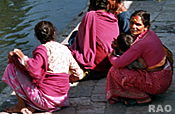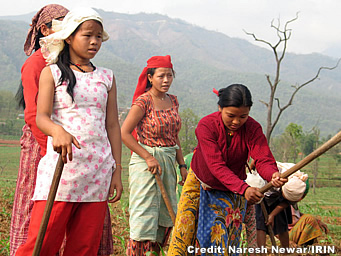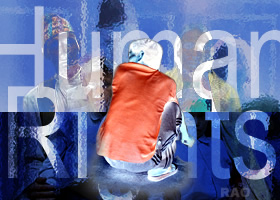 |
Nepal SOCIAL LIFE |
|
 |
Nepal Information |
|
|
 |
|
Girls
sold by parents for domestic labour |
 |
KATHMANDU,
3 February 2008 (IRIN)
 |
| Punita
Chaudhary was barely eight when her impoverished parents sold her for US$50
to a local middleman who worked as an agent finding domestic servants for
families in Kathmandu and other Nepalese cities. Chaudhary ended up with
a family in Kathmandu where she had to work for 18 hours a day and was
allowed just a few hours sleep. "I did all that for the sake of my family
and now I regret it," Chaudhary told IRIN in Kathmandu. |
|
For
nearly six years, Chaudhary, 16, had to endure verbal abuse, mental torture
and physical abuse at the hands of her employers, a married couple who
were working as teacher and doctor, said Chaudhary.
She also had to work
for dozens of her employers" relatives and friends in different houses,
she said.
"One
day I decided to flee and now I am safe," said Chaudhary, who is now going
to school with the help of local non-governmental organisations (NGOs)
like Nepalese Youth Foundation (NYOF) and Friends of Needy Children (FNC).
NYOF and FNC are involved in rehabilitating indentured domestic workers
through their Indentured Daughters Program (IDP).
|
Over
20,000 indentured domestic workers |
 |
According
to NYOF, there are over 20,000 indentured domestic workers, also known
as "Kamlari".
 |
The
"Kamlari" system originated nearly 50 years ago when poor families belonging
to the Tharu community, an indigenous ethnic group in southern Nepal"s
Terai region, provided daughters as domestic servants in exchange for cash.
The
practice is still prevalent and activists have started to call it "internal
trafficking" of girls who are literally sold off by their parents with
the help of local middlemen. |
|
The
young Tharu girls, aged 6-10, are taken mainly from the districts of Dang,
Bardiya, Kanchanpur, Kailali and Banke, all about 600km west of the capital.
Most
of the girls are brought to households in Nepal"s cities and towns where
employers include politicians, bureaucrats, local NGO workers, teachers,
journalists, human rights activists, teachers and government officials,
according to NYOF.
"This
is a dreadful practice and we should help to rescue as many girls as possible,"
said NYOF"s executive director, Som Paneru, who initiated the plan to rescue
and rehabilitate the indentured domestic workers.
In
the last eight years, NYOF and FNC have helped to rescue over 4,000 girls,
all whom have now joined schools or informal education programmes.
''This
is a dreadful practice and we should help to rescue as many girls as possible.''
Abused
Besides
the labour exploitation, the girls also suffer from sexual abuse, rape,
physical torture, starvation and neglect of education, and there are also
many cases of the girls being trafficked for prostitution both in Nepal
and to India, according to FNC. In addition, many girls also disappear
once they are purchased by the middlemen.
"It"s
difficult to rescue most of these young girls as their whereabouts are
mostly unknown and most of the time the parents do not cooperate," said
Man Bahadur Chettri from FNC. He explained that NYOF and FNC have filed
court cases against the agents and the parents to successfully get them
to cooperate.
Nepal
has laws against employing children under 16 but they are yet to be strongly
implemented, said NYOF"s Paneru.
Source:IRIN 2008
Copyright
© UN Office for the Coordination of Humanitarian Affairs 2008
[
This report does not necessarily reflect the views of the United Nations]
Integrated
Regional Information Networks (IRIN), part of the UN Office for the Coordination
of Humanitarian Affairs (OCHA). |
 |
|
Links
|
 |
 |
 |
Externe
Links |
|





